New York City, January 3, 2017

★ The failure of daybreak was so total it seemed as if something must have gone wrong with the clocks in the change of years. The usually wakeful child was drowsy in the dark and the usually sleepy child was unreachable. By dropoff a sort of daylight had established itself, with cold mist blowing. The mist became rain; the wind groaned at the door. The gray stayed gray all day till it briefly acquired a pink tinge, then went dark.
Things To Hear: Things To Not Hear
Brian Eno talks about sounds.
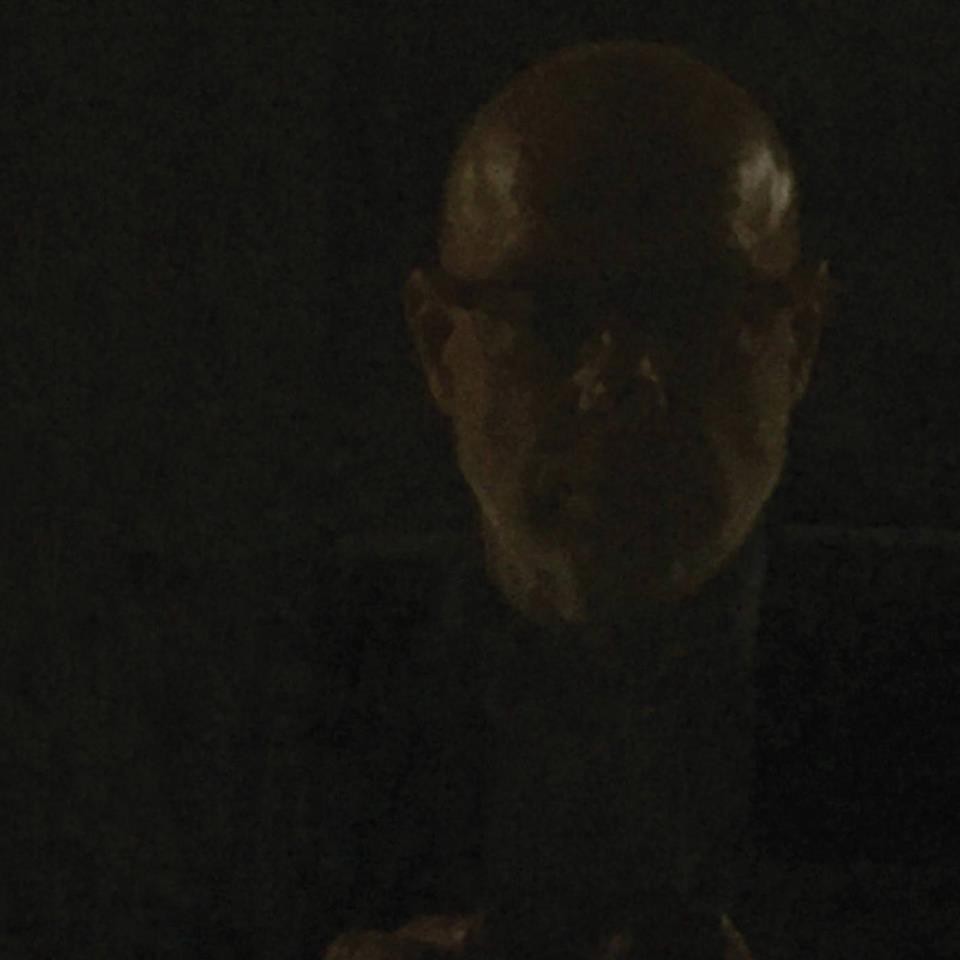
Reflection, Brian Eno’s latest ambient work, is out now. (It says here: Slightly better than Lux, not quite as good as Thursday Afternoon.) If you’ve got a couple hours and are someone for whom this falls in the center of a specific Venn diagram you carry around in your heart, you will enjoy the conversation below between Eno and Jarvis Cocker about ambience, layers of probability, analog v. digital and other things. (Skip ahead to the 36 minute mark if you’d like to get right to the chat, but don’t skip ahead, it’s all good.)
Reflecting on Ambient music for Brian Eno, Jarvis Cocker’s Sunday Service – BBC Radio 6 Music
[Via]
This Creature, Perpetually Mortified
For anyone in or around Wookey Hole, England
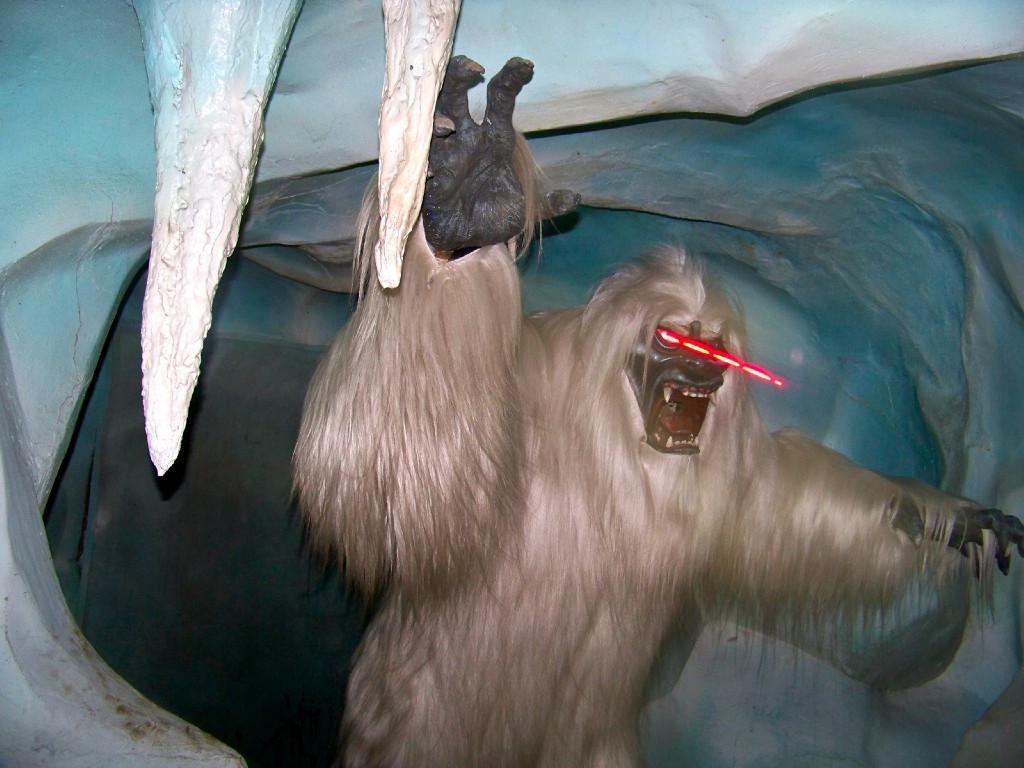
Scientific American ran a piece this week by a guy named Darren Naish, a cryptozoology author. If I just used a word you don’t recognize, cryptozoology is a self-proclaimed pseudoscience with the goal of “identifying and describing beings… that are otherwise considered extinct or…from folklore, such as Bigfoot and chupacabras.” In other words: the science of investigating life forms we only have anecdotal evidence of. So let’s say someone says, “I spotted the Loch Ness monster in my pool.” Cryptozoologists try to use what we know about biology and history to either confirm or deny the probability of that claim. In a way, we are all participating in a form of cryptozoology when we fact-check Donald Trump’s tweets. Topical!
Anyway, I bring all of this up because within his piece (which is about the Minnesota Ice Man) Naish includes a personal photograph he took at an exhibit in Wookey Hole, England.
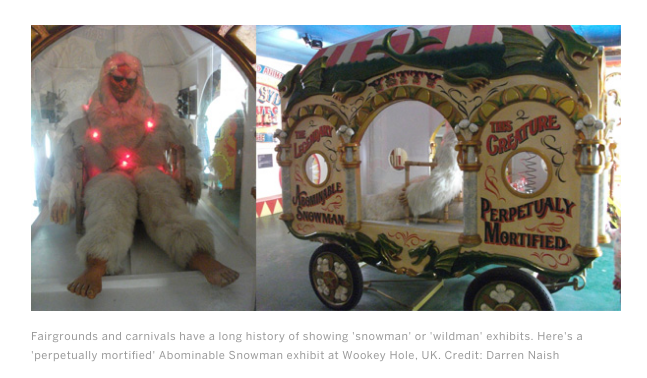
It shows what appears to be an old-timey fair cart housing an impeccably-dressed abominable snowman. My main area of interest, though, is the porthole window at the cart’s side.
“This creature,” it reads above the opening. “Perpetually mortified.”
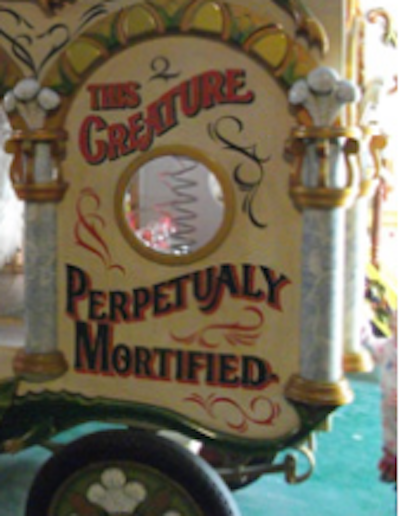
Has there ever been a more “it me” design choice? Can you imagine, if you will, being able to stick your face into that window and have a friend snap a photo of you with these words elegantly framing it?
I immediately Googled around for more photos of the cart to see if other patrons had the same idea. “That is probably a very popular Wookey Hole snapshot,” I thought. Weirdly, though, my search yielded nothing. Searching “abominable snowman wookey hole” gives you lots of angles of the snowman himself, but nothing when it comes to the cart. “This creature perpetually mortified” is just a bunch of someecards. I tried the Instagram geotag and checked a bunch of different word combinations on Flickr, assuming tourists would be sharing this exact photo over and over again, if only I found the right search terms. Again, though, nothing. Is it possible that… no one gives a shit about this cart? Or has the cart maybe been retired? Certainly people out there aren’t just… not finding this funny.
I reached out to the Wookey Hole Caves visitors center for comment, but have yet to hear back. In the meantime, if you live near Wookey Hole or happen to be there and would like to do some light recon for me, I’d really love to know if this cart is currently on display in their fine establishment. Perpetually Mortified is simply too good a tagline—bless the hypothetical carnival employee who thought of it.
Undercover SCOTUS
How Chief Justice Roberts did his year-end evaluations

2016 was not ending the way Chief Justice Roberts had expected. In the months since Justice Scalia died, the Chief gradually resigned himself to judicial irrelevance. Phoning in dissents. Working as little as possible. But then Donald Trump was elected.
“Jake, what should we do next?” Chief Justice John Roberts asked. Jake was the social media manager the Chief hired when he realized the only way Trump communicated was via Twitter. What if America’s survival depended on the Supreme Court’s ability to engage with an unbalanced president?
“Like, what do you mean?” Jake was busy reading a sports and pop-culture website.
“I was so ready to be in the minority forever,” the Chief said, because he was an elite and therefore assumed Hillary would be elected the next president, and, as such, would control the Supreme Court’s destiny. “And now I don’t even remember what my colleagues look like, let alone how they think about separation of powers,” the Chief said.
Just yesterday the Chief had run into Justice Sotomayor in the elevator bank, and to avoid riding down with her, he lied that he forgot his deodorant in his chambers. In fact, he didn’t even keep deodorant at work anymore. He hadn’t sweat through his shirt since Justice Scalia died in February. What if they made eye contact? What if she brought up the election? He couldn’t bear the thought.
“What about ‘Undercover Boss’?” Jake asked. “My camp friend who I only email when I need a favor is a producer there. I could give him a call?”
“I was thinking more like I should see a therapist or try hot yoga or go back to church?”
“No, this will be perfect.” Jake explained. “On ‘Undercover Boss,’ you can make eye contact with your colleagues, but not vice versa, because you’ll be disguised. You can see what they’re saying when you’re not in the room. See what they act like when they’re being themselves. This is how you move forward. Fuck church.”
Jake was very wise for someone who read sports and pop-culture websites most of the time.

The Chief Justice and an “Undercover Boss” producer knocked on Justice Kagan’s chambers. The Chief had affixed a Ned Flanders moustache onto his face. His hair, typically perfect, was now a Flowbeed mullet.
“Chief Queef,” Justice Kagan teased as she opened her door. She recognized her boss immediately, and often called him this vulgar name to disarm him.
“I’m not the Chief Justice, and don’t call him that. I’m here to interview you about your job. I am a Frontline documentarian.”
Justice Kagan tilted her head like a dog looking at her owner to let her outside to go pee.
“How the hell have you been, boss? I’m on my way out to play bridge with Lindsey Graham, Al Franken, and Rex Tillerson.”
“I would like to interview you about your job as Associate Justice of the Supreme Court.” The Chief pressed on, even though he was pretty sure Justice Kagan knew who he was. “This will only take twenty minutes.”
He ushered the camera crew into Justice Kagan’s chambers. The Chief looked directly into Camera 1. “I am Kyle and I make documentaries for public television. Justice Kagan will walk me through her typical morning.”
“Did you see Justice Sotomayor signed up to bring a Keurig to the holiday party?” Justice Kagan asked the Chief. “You can’t sign up to bring something you already have. That’s like Paul Ryan bragging that his Obamacare replacement is going to cover people without pre-existing conditions. She should’ve brought us some of her mom’s cooking.”
“I think her mom is still in New York?” the Chief accidentally asked.
“I thought you were making a documentary.”
The Chief smirked, because he had been had.
“I was so ready to be in charge after Merrick Garland got here,” Justice Kagan sighed. “I mean, can you imagine? We would’ve ruled that the Voting Rights Act is the most important law of all, that anyone whose vote has been abridged for any reason whatsoever, but especially racism, can vote twice. Felons can vote infinity times.” Justice Kagan winked at the camera.
“What’s going to happen?” The Chief transferred his anxiety about Donald Trump onto someone who absolutely did not vote for him.
“Don’t do this to me. He’s your guy.”
“I know.” The chief removed the Ned Flanders moustache. He tried removing the Flowbeed mullet but it was somehow stitched in so it couldn’t be readily detached.

When the Chief knocked on Justice Alito’s door, he was wearing sweatpants tapered at the ankle and an oversized t-shirt Jake bought from The Life of Pablo tour.
“Justice Alito? I am a millennial here to interview for a job with you.”
“What’s with the camera crew?” Justice Alito asked without looking up from his laptop.
“My generation records everything?”
“That’s true.” Justice Alito said as he scribbled notes onto a Christmas card from Kellyanne Conway. She had included a scratch-off inside, which was gauche and probably illegal. He’d have to check.
“I went to Yale College and then Yale Law,” the Chief began. “I support Calhoun College House not changing its name. We have to draw a line somewhere. A name is a name.”
“You have my attention, son.” Justice Alito put on his glasses. “Oh, Chief Justice. I thought that sounded like you. Why are you wearing five o’clock shadow makeup? And sweatpants?”
“I’m not the Chief Justice. My name is Johnny Manziel.” The Chief broke the fourth wall and made a ‘who knows?’ face directly at the camera.
“I have this dull nagging lower back pain ever since Trump won.” He put ‘won’ in scare quotes. Even though Justice Alito voted for Donald Trump, he never thought it’d actually fucking happen. “I’ve narrowed it down to either diabetes or something really bad.”
“Have you talked to Justice Ginsburg?” the Chief asked, abandoning the charade. “She had back pain after that one term she read all those dissents aloud from the bench.”
“Oh, she hasn’t been in since Trump won,” Justice Alito said. “President Obama set up a germ-free quarantine for her in Bethesda, I read. All she does is drink cashew milk and eat kale and fish oil tablets.”
“Yeah, it’s an odd moment.”
“Like, can we see Manchester by the Sea or not? That’s all I want to know.”
The Chief Justice nodded because he wanted to know the same thing, actually.
“I just want everything back to normal,” they said in unison.

The Chief Justice and a cameraperson, dressed in bright blue and orange tuxedos like Lloyd and Harry from Dumb and Dumber, approached Justice Thomas, who was eating a Chipotle burrito.
“No,” Justice Thomas said to them as he tossed what was left of his burrito into a green recyclable container meant for paper products.
The Chief and the crew reversed course immediately.
“Asshole,” Justice Thomas said to no one, but also to everyone.

The Chief Justice texted Jake, his social media manager, “I don’t know if the producers have much film they can use?”.
“Try it with Justice Kennedy. He is the dumb one, right?” Jake replied.
“Yeah, basically.”
Later that afternoon the Chief sat in Justice Kennedy’s chambers. He wore a wig of long pasty hair, like Tom Cruise in Born on the Fourth of July after he’s left the Marines. He lit a cigarette to help convey that he was in fact a possibly homeless veteran.
“I need a lawyer. I killed a cop.” He gestured his pack of cigarettes to Justice Kennedy, offering him one.
“I only smoke when I drink, but thank you.”
“So can you help a Vietnam vet who is homeless and who killed a cop?”
“I think you’re confused? I am not a law office,” Justice Kennedy explained, as he motioned to the name plate on his desk that read ‘Justice Anthony Kennedy, Swing Justice A.K.A. Most Imp. Justice.’ “And why do you have a camera crew following you? Is this MTV?”
“You’re a lawyer, right? I’m just exercising my right to counsel, which I fought the Viet Cong for.”
“You do have a point. But I think you’d be better served by one of my more pro-defendant colleagues.”
“Before I go, can you tell me what you like or don’t like about working here and how the Chief Justice, your boss, could help make your job easier or better?”
“I mean, my job is basically perfect. Do you know what swing vote means?” Justice Kennedy tapped his name plate. “Now that Trump is president I get to be the swing vote until I die.”
“That’s morbid.” There was something about Justice Kennedy’s sureness of tone that really ticked off the Chief Justice. This was all going terribly. Fucking Jake. The Chief should’ve gone to church.
“Because he will appoint someone to the right of,” Justice Kennedy trailed off as he tried to remember Justice Thomas’s name. “My point is. I will still be the center,” Justice Kennedy continued.
“No, I get it. I get how it works.” The Chief tried to pull off his greasy wig but like the Flowbeed mullet, it was securely stitched in. “I’m the Chief Justice, Justice Kennedy. Jesus Christ.”
Justice Kennedy gasped because the Chief had taken the Lord’s name in vain.
“All those cases I couldn’t convince you to join me, you side with the liberals. And a Born on the Fourth of July costume tricks you? What the fuck is wrong with you? What the fuck is wrong with our institutions?”
Justice Kennedy fainted due to all the profanity.

Later that afternoon the Chief Justice received an email from the “Undercover Boss” producer. It read:
Believe it or not, but my boss wants to air this episode. Now more than ever, she told me, the American people need to see how dysfunctional their government is. Please review the copy below, which we will roll over the final scenes:
Justice Kagan once a week leads judicial conferences, including nonverbally conveying to Justice Kennedy that he has said enough. She asks Justice Sotomayor to bring her Keurig.
Justice Alito has opted to see Manchester by the Sea. The decision was easy after Justice Ginsburg exhaustedly gave him permission to go see the [expletive deleted] movie.
Justice Thomas befriended the “Undercover Boss” camera crew. They text about how dumb everyone is, including Donald Trump, whom they all voted for, and Justice Kennedy, who was tricked by his boss.
Justice Kennedy continues to enjoy his outsized influence on questions of constitutional law.
The Chief Justice now understands that 2017 will be no better than 2016. Next up: hot yoga until he melts.
Luke Mazur is on Twitter.
High Spirits
The Nevada City Shochu Diaries
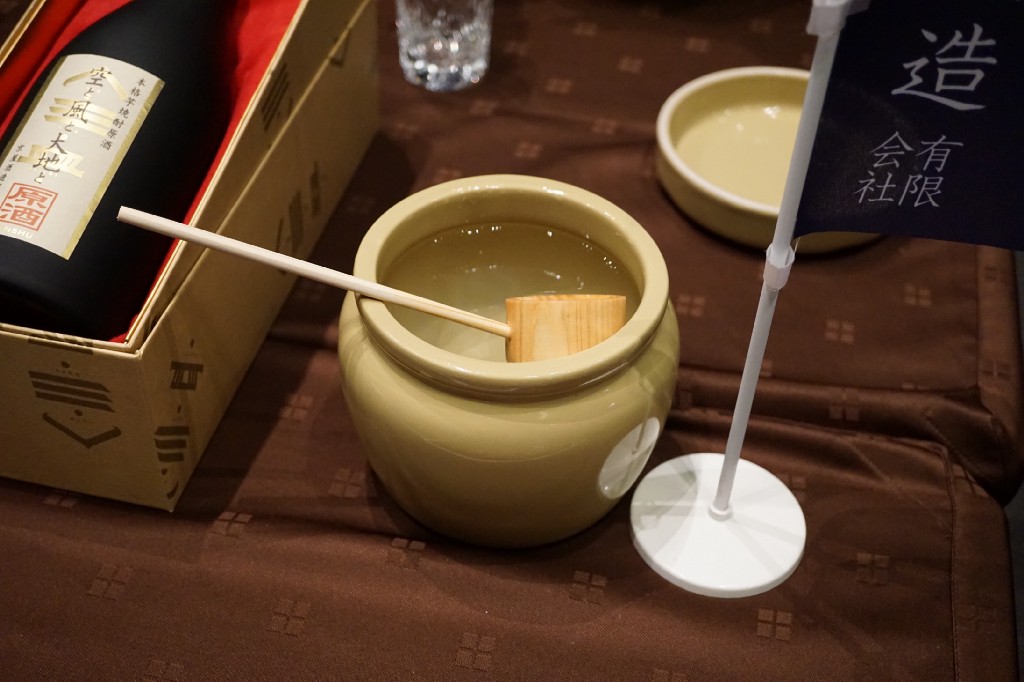
In November, I went to Japan on a sponsored trip designed to introduce beverage writers and other beverage professionals to a Japanese spirit called shochu. Shochu is delicious and interesting and mostly distilled from barley or sweet potatoes, though sometimes from other things. It has roughly half the alcohol content of things like vodka or whiskey, so does not really have the fiery burning instant buzz situation of those liquor traditions. That said, a British businessman I met at the Shinjuku Station Starbucks who decided to become sober immediately after such an experience assured me you can get epically wasted out of vending machine shochu cocktails.
Drinking shochu is a good way to drink spirits AND taste your food. After my trip, I went to the Brooklyn restaurant Karasu with my friend Frank, who works there, and we had steak. Because I am a completely garbage person, I was drinking whiskey — I was in the mood for it — but then Frank suggested I have some shochu with my steak. The steak was already out of this world, but it instantly became 10,000 times better, and you can trust me, because I am not an annoying “pairings” jerk.
Also, shochu is not to be confused with soju — the stuff people without liquor licenses put in your Bloody Mary. Also, this has all been a long aside. The story starts now.
The shochu trip itself was going to be six days, and on Japan’s southern island, Kyushu. But it seemed if I was going to go all the way to Japan, I should spend some time seeing more of the country. So I arranged to spend three days in Tokyo on either end of the Kyushu trip. On the front end of my trip, I decided to take a side trip to eat at a newish restaurant called Izakaya High Spirits, in a town near Mount Fuji called Fujikawaguchiko. The owner, Tsuyoshi Natori, is a friend of a Facebook friend. I know that doesn’t seem like a terribly tight connection, but Natori also lived in Nevada City (where I live) for several years, and worked as a chef at a really good Japanese restaurant here called Sushi in the Raw.
Since the shochu portion of my trip was going to be guided and fairly regimented (which was absolutely fine with me—traveling in Japan is challenging for a non-Japanese speaker) this Mount Fuji mini-jaunt was to be my one adventure. I had seen Facebook posts that suggested eating and drinking at Izakaya High Spirits was sort of like hanging out with a bunch of good friends that you just met while also eating good food and drinking good booze. I was a little worried about the sociability of it, because maybe I was too old for that sort of thing, but I figured I would give it a try.
After two days in Tokyo with a college friend (an endlessly entertaining and generous host who took me for steak at the Park Hyatt and sushi at the Ritz-Carlton) I boarded a train, in Tokyo Station, winningly called “The Romance Car.” As the beige Tokyo suburbs gave way to a more wooded, mist-filled landscape, I bought a cup of green tea from the woman walking up the aisle serving snacks and drinks and felt rather pleased with myself.
A hour and a half later, we pulled into a station. A light, almost frozen rain was falling. I had that helpless childlike feeling of having no idea what to do next, which always feels so weird next to the adult, adventurous feeling of traveling alone in a faraway country. I recall the train station as having a ski lodge-like feeling, but I could be totally wrong about this; I took horrible notes in Japan because I was always just trying to figure out what was going on. Anyway, there was a glassed-in information booth and I handed the woman inside it a piece of paper with the address of my hotel written on it.
“This is Hakone,” she said. She did not smile.
I told her I understood that, but wasn’t Fujikawaguchiko just a short taxi ride away?
It was not. It was about three hours away, and not three hours away on another beautiful train. It was three hours and three buses away.
I began arguing with her.
This did not make her any less correct nor draw any closer the town of Fujikawaguchiko.

How had this happened? Well, imagine if you were in New York City on vacation and you didn’t know shit about it or the surrounding area. Imagine also that not only did you not speak any English, you spoke a language comprising totally unfamiliar symbols altogether so that everything in your range of hearing and line of vision was both confusing and fatiguing. Then imagine you had a plan to make a side trip, the details of which you hadn’t yet attended to, because you weren’t the sort of person who always attends to things.
Then let’s say, finally trying to attend to things, you told one New York City resident, “I’m going to Upstate New York! (Which you thought of as ONE PLACE) How should I get there?” And, for some reason, this person said with total certainty, “Oh, you’re going to take Metro North to Cold Spring!” Then imagine the exact same conversation took place with a totally different New York City resident a few hours later, and you thought you had the right information, because why would two people tell you the same thing if it weren’t true?
And then imagine that you took Metro North to Cold Spring, when in fact you were supposed to take the Greyhound to Kerhonkson which is neither spiritually nor geographically anywhere near Cold Spring.
In short: two separate people who did not know each other, on two distinct occasions, upon hearing me say I was going to Mount Fuji, exclaimed, “Oh, you want to take the Romance Car to Hakone!” And it didn’t occur to me that they might both be wrong.

Outside, there was a long queue for a bus to take me deeper and deeper into Japan. The rain intensified. I had not eaten anything all day. The green tea had, as it often does, briefly staved off my hunger, but then pitched me into depths of a desire for nourishment so mercenary and unchecked that I found myself staring at a nice Brazilian couple’s bag of cookies. “Here,” the woman said, handing some over, because who says “Would you care for any?” to a wolf?
Also, I had no cell phone. I didn’t trust AT&T not to just fuck me with a three billion-dollar bill (“No, your international plan doesn’t actually work THERE!”) so I had signed up for NO PLAN and was going through Japan like it was 1980, no map function, no Google. The information booth lady had given me a map, which showed the first two buses and the first two destinations. The third bus route, and the third destination, did not exist on any map she had in her possession. No, after some place called Gotemba Station (not to be confused with Gotemba Premium Outlets?) it seemed I would be heading off into nothingness.
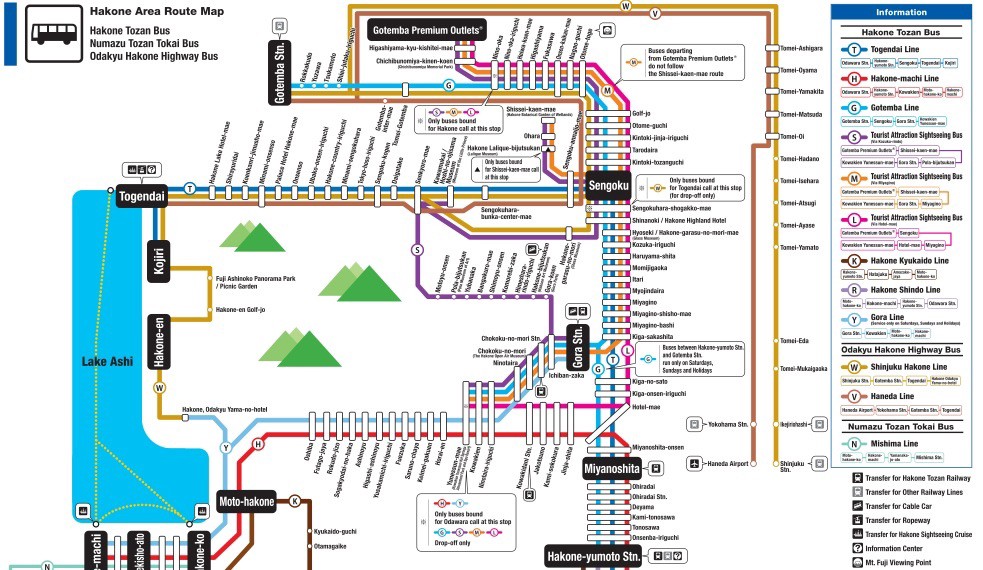
From Hakone, which was old and “authentic” but touristy, we climbed a narrow winding mountain road. There was a lot of thick foliage and mist. It was beautiful, but it was hard to relax because I was not at all confident of my next move. Everyone on the bus except for the Brazilian Cookie Samaritans was elderly and Japanese. A red digital sign at the front of the bus let you know which stops were coming up, but a lot of them sounded very similar. There were four stops in a row that began with “Miya.” And I was getting off at some place called Sengoku, but there were two other stops — Sengokushara and Sengokushara-bunka-something. A constant stream of automated Japanese coming out of the bus’s loudspeaker successfully prohibited any kind of thought.
I was overwhelmed.
I stood up as we approached what I was pretty sure was plain old Sengoku. “No, no,” chorused the Brazilians, “This isn’t your stop, it’s the next one!” I felt bad defying them because they’d given me a cookie, but I also felt strongly that they were wrong. I got off.
A sign read Sengoku but I did not find this terribly reassuring. I wasn’t exactly in the middle of nowhere; I was in a small town clutching a mountainside, and there were buildings and stuff—proof of civilization. But there was no one around. I thought wistfully of the shitty but attractive black Naf Naf raincoat I bought in Paris, from a salesgirl who said proudly as I tried it on, “This is the biggest one in the whole store.” It was hanging in my friend’s closet in Oakland. I’d actually taken it out of my bag and left it there at the last minute, to save space, and because someone (not either of the people who’d told me to go to Hakone, no, some other wrong person entirely) had told me it didn’t rain in Japan at this time of year. By now it was pouring, great buckets of famously sweet Japanese water falling unremittingly from the Japanese sky.
I stood on a corner under my $11 umbrella, glad it wasn’t a $5 umbrella. I laughed out loud. What else could I do? After about five minutes, a teenage girl emerged from the mist. She was wearing headphones and a surgical mask. Surgical masks are very popular in Japan. They are supposed to be all about protecting yourself and other people from disease, but they’re also worn to indicate a lack of sociability, with which I theoretically sympathize but at this particular moment found inconvenient. No fool, the girl started to cross the street before she reached me, and I shouted “Excuse me, excuse me” and then even ran after her. She did not break stride. She did not even move her eyes.
If you have utterly humiliated yourself but no one is around to witness your humiliation, is it possible it has indeed not taken place? Asking for a friend.
I picked a direction and walked. I was lucky enough to come upon a tiny fish market, where a woman of about sixty and a man about half her age who I imagined to be her son—because who besides someone’s son would agree to spend his life with a woman twice his age running a fish market in a nearly empty town clinging to the side of the mountain—were hard at work. No actual words were exchanged, but somehow, the “son,” in a white, blood-splattered apron, walked me back to a spot slightly up the block from whence I had come, a small parking lot outside what was possibly a municipal building and where no person would have ever guessed, not in ten thousand years, buses picked people up and dropped them off. As we approached, he waved to a girl standing on the sidewalk near the parking lot, and called something out, and she called something back, and beckoned. As I joined her she bowed and smiled, and, when I held out my sodden map and pointed to my destination, she nodded and said “Hai.” I smiled at her, willing myself not to burst into tears of gratitude.
We stood there silently as the sky unburdened itself of a mere fraction of the 1,668 millimeters of water that fall yearly on this beautiful island nation.
The bus arrived within ten minutes. I indicated to the bus driver that I needed to sit down to get my wallet out of my bag but he indicated no such shenanigans would be taking place.
(May I voice an aside about Japan? You can’t just be like “Oh, gee, what if I engage in this tiny deviation from the way things are usually done because everything will all turn out O.K. in the end anyway?” In my extremely limited experience, I would say that the Japanese do not give a fucking shit about how things turn out in the end. What I’m trying to say here is, when you get on a bus in Japan, have exact change in your hand ready to go.)
After fishing in my bag and stumbling around and clutching at railings for God knows how long, I collapsed, sweating, into a seat. I listened to a Barbara Vine audiobook and napped. We climbed and climbed and climbed and the rain kept coming, harder and faster. I began to feel like I was in a cozy, sweet, adventure story rather than a dark, dangerous one. The Japanese girl smiled at me encouragingly, as if to say, “You’re doing a really good job sitting on a bus.”
These feelings of security disappeared when I arrived at second to last stop, a parking lot with no discernible place to get another bus. My encouraging young buddy was gone. I wanted to get off the bus quickly and figure out my next bus, because it was quite possible it was the last one of the night. But when I tried to disembark, a man was standing at the bus exit. He was talking to the driver, who glowered at me. His eyes said, “I remember you, hapless female American change fumbler!” I bowed a little and smiled. The man blocking me made eye contact but didn’t move. This went on for a while, until I walked down the bus stairs, thinking, “Surely he will get out of my way” at which point he did not. I literally shoved past past him, muttering, in English, naturally, “Get the fuck out of my way, you fucking asshole.”
(There are those who would call me an obnoxious American. I say, if you’re traveling alone as a woman, there are moments where men are going to try to teach you a lesson. It’s up to you to let them know that indeed, no lesson has been learned.)
Nearby, there was a little cottage-type thing that looked like a place where you might buy bus tickets. And it was. But not for my bus! No, my bus and bus ticket awaited in a brutalist era horror show on the other side of the parking lot. Once there, I trotted up some sad concrete stairs to one ticket window only to discover that my ticket window was down the stairs and out the door and on the other side of the building.
My ticket was really expensive. I didn’t mind paying—I really wanted to go to this restaurant — but I was worried by how the expense suggested I was not as close to my destination as I might have wished.
This town looked like any not nice, unremarkable city near open space. There were lots of puddles and young men splashing though them on mopeds. There was a drugstore, and some ugly bars. It reminded me of Pittsfield, Massachusetts, or Lancaster, California, or Ibagué, Colombia, but I was only standing in one corner of it, so what do I know.
This bus itself was not a touring bus but a municipal bus, and I shared its chilly utilitarian emptiness with five teenagers — four girls and one boy, all in school uniforms. They sat in a row. One boy snuggled with one of the girls, and they were sharing one black knit hat like a cigarette. All five of them dozed intermittently and I waited until a moment when they were all awake to ask if any of them spoke English. The made self-deprecating faces and muttered “a little.” Then they all pointed to the boy, who leaned forward and said, “I am the best.”
He was handsome and had acne. “Am I actually headed toward,” I read it syllable by syllable — “Fu-ji-ka-wa-gu-chi-ko?” They all laughed.
“Do you guys take this bus back and forth to school every day?” I asked. We had been climbing the steep side of a mountain for at least an hour. He said yes. I said, “Holy shit.”
“Why you on this bus?” he asked, and I said, “Because I am an idiot.” Everyone thought this was very funny. I was happy to be of service. (To be fair, I am not the first American to get on this particular bus. It was full of advice for backpackers, in English. Still, it is a very stupid way to get from Tokyo to Fujikawaguchiko.)
I was very relieved when we pulled into a small but proper bus station. In keeping with its reassuring theme as a universally recognizable place where buses pick people up and drop them off, several taxis were waiting. Sadly, none of their drivers had the slightest idea of where my restaurant or hotel was, and none of them spoke English. This presented a challenge. There was nothing I could do other than show them the address over and over again and hope for the best. I suppose I could have just crawled into the bushes and died, but instead, I just sat in the back of a taxi and waited until the guy asked literally every single person at the bus station where to go. Finally, someone knew. The guy hated me, but he could get in line.
Ten minutes and ten dollars later (a total of six hours and $140 dollars later) I arrived at Izakaya High Spirits.
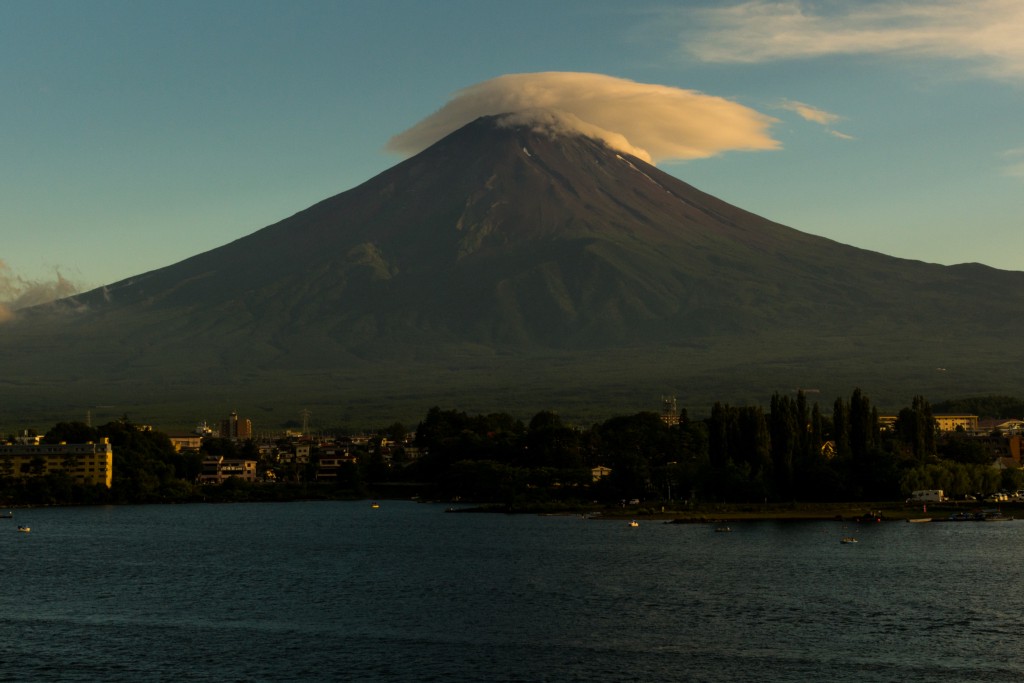

I opened the door to a room about the size of a suburban bedroom. The lighting was like a doctor’s office. There was room for maybe twenty people, literally. An Italian couple sat on the floor at a low bar, and behind it was Tsuyoshi, or Go, as people call him. He was in his thirties and tall and it was not easy to make him laugh but when he did laugh he laughed heartily.
I am Sarah, I said. After what I had just gone though, I kind of expected a fucking marching band to come out of the kitchen. I had managed to turn my phone on for a minute and tell him I was indeed coming, but he hadn’t gotten the message.
He just nodded. “I didn’t think you were coming,” he said.
“I’m here,” I said again.
“Yeah, I know,” he said. I wanted him to be more excited that I was there, but I saw that I could not force this. There were liquor bottles gleaming on the bar and raw fish glistening behind the glass. I wanted it all.
I saw that they didn’t take cards. So out into the rain I went again. Go told me the bank machine was about seven minutes away, which might have been true if I were a gazelle. There were two possible choices and I of course picked the one that did not take my card first. But I finally emerged with $200 in cash and ran back to the restaurant.
The first thing I had was a barley shochu, Bakuretu, from Yamanashi prefecture. Go gave it to me on the rocks. He advised me against starting off with a sweet potato (imo) one, which is probably a reasonable way of proceeding, since those have flavors many Americans have not tasted or tasted a lot, and which, two months later, I still don’t quite get. But anyway, this barley (mugi) shochu was fragrant and slightly floral smelling, and had a liquor’s warm satisfying richness but was smooth, and didn’t overpower the plate of sashimi I had. I have no idea what sort of sashimi I had, because I was just starving and ate it like it was oatmeal, but it was fresh and delicious and served with a soy ginger sauce.
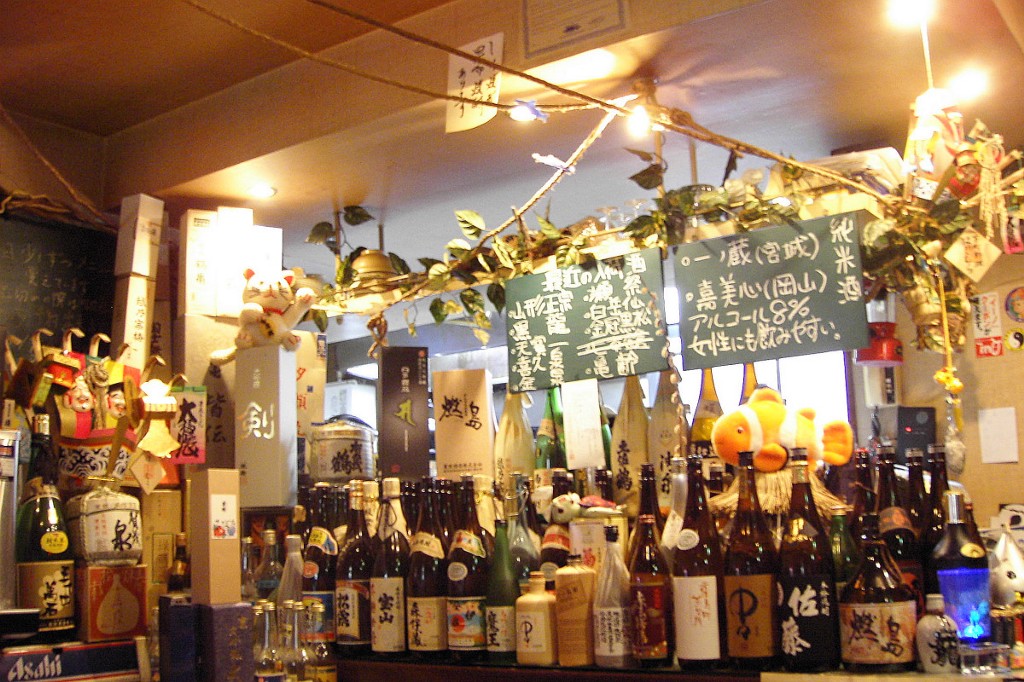
A young guy who worked in finance in New York showed up and sat next to me and we drank more of the barley shochu and both ordered some sliced beef with salt on it. I love beef. This was perfect beef—rare, high-quality, marbled, cold. There is nothing to me like plain good beef with salt and a drink that goes with it. “Meat is the bomb,” said the finance guy, and I said it sucked that we weren’t supposed to eat it anymore. “What are you talking about?” he said, and I said, “How do you not know that?” and he said “I don’t know, I just don’t.” He was a well-educated, successful person who was naïve as a ten-year old. I kept laughing at him and he both liked and did not like this.
Then I ordered a sweet potato with miso butter, a really simple thing that is very delicious.
Meanwhile, the Italian couple started explaining to us the ways in which Italy sucked and then I started explaining to them the ways in which America sucked, and they said I did not have to explain this because they had already lived there. Then the young guy said he thought of Europe as this wonderful place where everything was chill, and the Italians laughed very hard, and I laughed along with them, and Go laughed too. “Wow, you’re mean,” the young guy said, not really bothered, and then we ordered sweet potato shochu, also on the rocks, and agreed it tasted unusual but that we wanted to keep drinking it, to figure out why. We didn’t. It definitely doesn’t taste like sweet potato-flavored alcohol though.
Around 9:30 p.m., deep into the Italians explaining to us what a Berlusconi presidency had been like, twelve guys from Thailand showed up. Go told them he didn’t have a lot of food left, but that he had drinks and snacks. They got bottles of sake and encouraged us to share. They tried our shochu. The finance guy asked me what I was doing in Japan, and I said I was there to drink shochu. “For a whole week?” he said. “More or less,” I said. He looked mystified. “Is that like, a job?” he said. I explained to him that I had an adventurous life that was also hard, but he didn’t believe the second part. I told him I lived in a trailer behind a jail. “Shut the fuck up,” he said. It’s true, I said. It’s a really nice trailer and a really nice jail, but would you want to live in a trailer? He didn’t answer. I ordered squid. I love squid, the way it gives under your teeth, and this stuff was good, smelling just faintly of sea air and not much else. “What are you guys doing here?” I asked the Thai guys, because they seemed like they must be on some kind of sports team, but no, they were all just here on vacation. “Same as you!” Go said, and everyone laughed at me and everyone drank more. Everything was just as Facebook promised.
It was just a short walk back to the hotel. It was rainy but warm. The town was modest and, after the city, fairly empty. I was only about ninety minutes from Tokyo, but because I traveled so extensively I felt like I was at the end of the earth. I dragged my suitcase over puddles and brushed my hand over wet Japanese weeds. I wonder where Mt. Fuji is, I thought to myself, before I went to sleep, too bad I won’t get to see it. In the morning, I walked out of the hotel and it was right there, looming over me, white, as big as the sun.
2016, In Order
From worst to best

12. November
11. December
10. October
9. September
8. January
7. August
6. April
5. February
4. July
3. June
2. March
- May
Related: 2015, In Order
Times I Got Emotional During 'Moana'
A case for seeing a movie
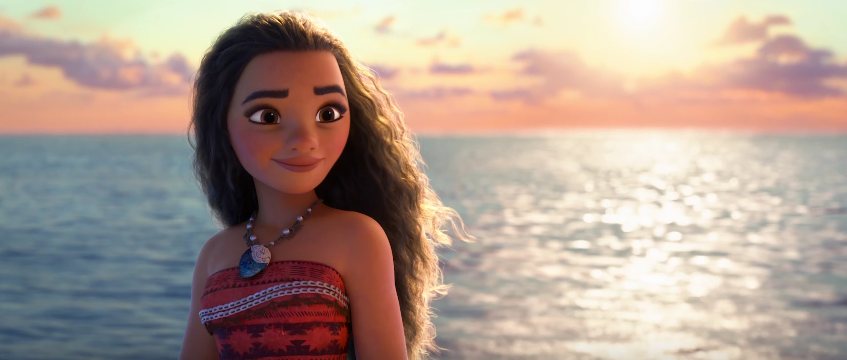
Have you ever heard of Disney? They make feature films and release them around major holidays so that we can see them with our families and feel okay-to-nice together a couple times a year. Sometimes this business plan works great for them and they give us something like Wall-E or Monsters Inc., and other times they biff it bigtime and fart out Pirates of the Caribbean 12: Still Out Here, but no matter the case it usually ends up being not the biggest waste. It’s because every Disney movie ends up being about family and love and ethics and what it means to be alive and good, so if you have a stance on any of those topics, you may inadvertently find your heart warmed by a film you weren’t even planning on seeing.
Take Moana, for instance—their latest release about a Polynesian girl born to lead the people of her island who ends up wondering, “Uh, hey, are we coming at this governing thing from the right angle?” I found the film to be Extremely Good, but I also understand that it is Oscars season and maybe you’d like to spend your dollars seeing Hidden Figures or Fences or any of the other ones that aren’t La La Land. But eventually, invariably, you will be confronted with the opportunity to see Moana, and I’d like to suggest that you take it.
Maybe you’ll be on a plane, maybe you’ll be home with a cold and clicking through the New Releases section on Prime—all I can tell you for sure is that you’ll probably have a very nice time. In lieu of a formal review, please accept this chronological list of points where I either teared up or felt like I could tear up during Moana:
- When Moana talks to her dad.
- When Moana talks to her mom.
- When Moana meets the ocean.
- When Moana talks to her grandma.
- When Moana sings her song about believing in herself even though she feels different from everybody else.
- When Moana believes in herself even though she feels different from everybody else.
- When things get hard and the ocean is like, “But I love u tho.”
- When Moana tells Maui a nice thing he needs to hear.
- When Moana thinks, “This is hard,” but then does the right thing anyway.
- When Moana yells, “I AM MOANA!”
Doesn’t that sound like a movie you’d want to see? Yeah, I know. Me too.
Banana, "Banana B"
You are well and truly back. Sorry.
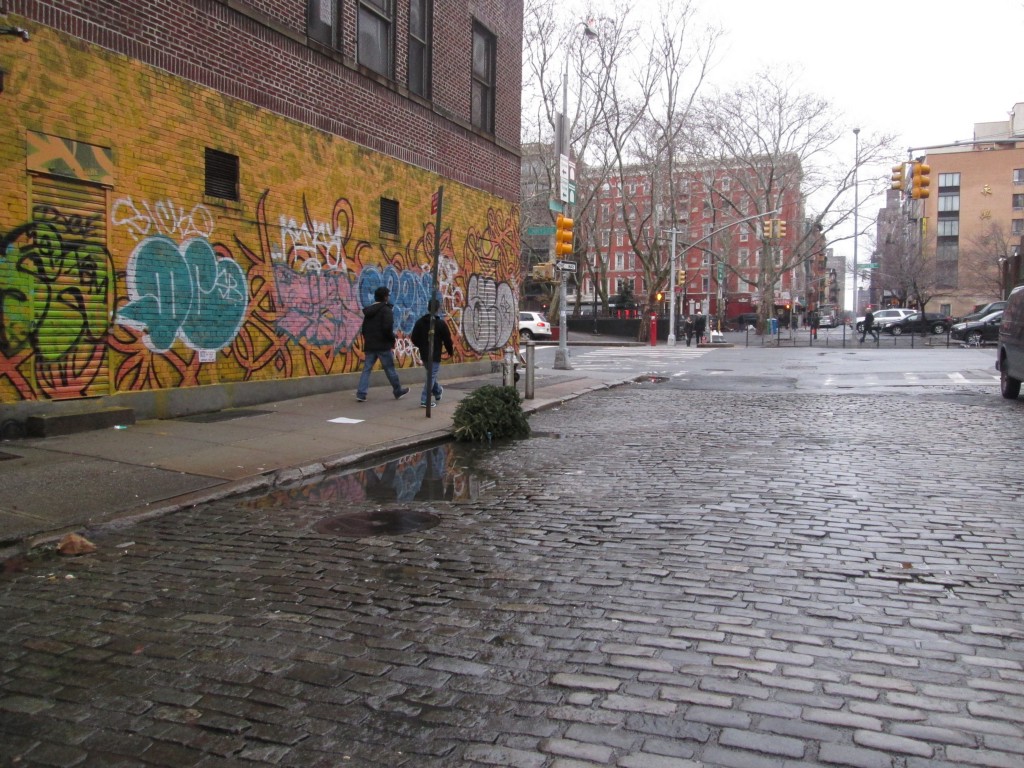
What were you doing a week ago? It was better than what you’re doing now, right? Let this be a lesson to you about things always getting worse, because I am looking over your next few weeks and wow, it just gets darker and colder and harder and sadder and it does not let up. Hold today close and cherish each terrible minute of it, because a week from now you’re going to wish things were this awful again.
I know nothing about Banana, below, but I rather enjoy this track. It may not be for everyone, though. It gets a little tough to take as it goes on, but then again so do you, and this ends nicely, unlike the way you will. Enjoy.
Aberdeen, Maryland, to New York City, January 2, 2017

★ The car-share key card clung to the wet windshield in the drizzly morning. Raindrops tadpoled away on the passenger windows as the car got going. On the road’s descent to Cranberry Run, a flock of wild turkeys was crossing, lean and tall and dour-looking, the males’ heads dark scarlet against the gray-brown woods. The parking lots of the shopping centers each had their own streamlets and puddles. At the gas station, the identification number on the key card’s paper sticker turned out to be nearly unreadable. The concrete island was raw, the inside of the car cozily warm and damp. The Turnpike was undifferentiated gray, broken only where tires had cut darker tracks into the water on the roadway. More cars than usual were off on the shoulder in distress. The clouds were high enough above Manhattan for almost all of the skyline to present itself. Pigeons huddled in the wide, gloomy shelter of the Port Authority bus ramp, on a sidewalk fuzzy with droppings and detritus.
Drynuary Questions? Drynuary Answers!
Everything you want to know except why the name is so cosmically horrible
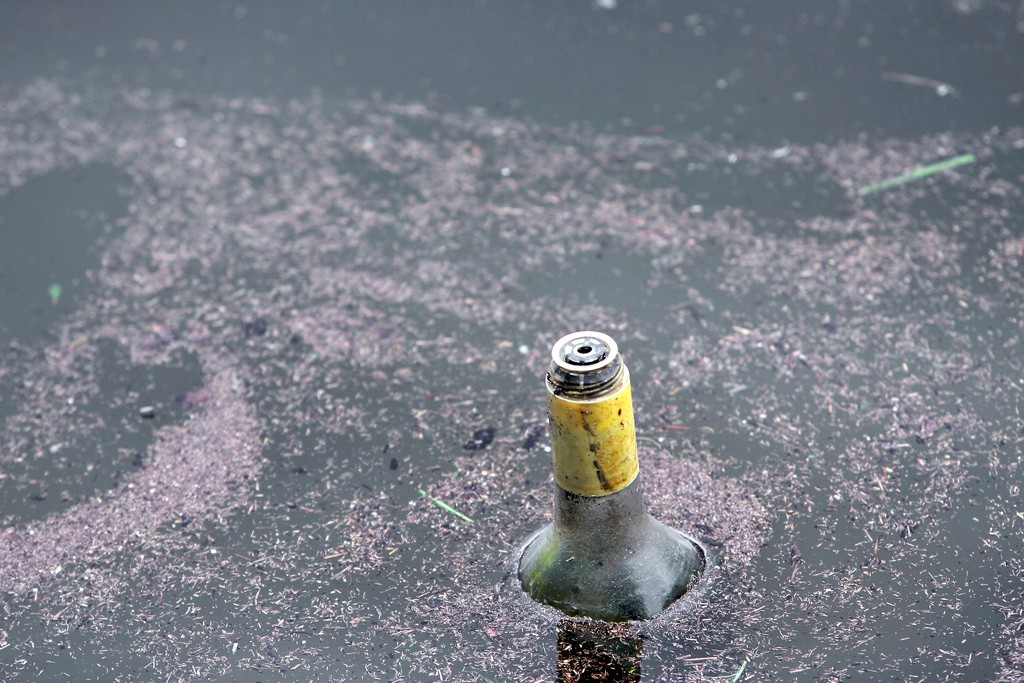
In case you missed it over the break, the New York Times offered up a profile of “Drynuary” expert John Ore. Here it is:
A Night of (Mostly) Not Drinking With a ‘Drynuary’ Expert
Longtime Awl readers will remember John’s original discussions about Drynuarying and all its struggles and rewards in these very pages, with his Drynuarying partner in non-alcohol-related crime, Jolie Kerr. If you’re new to the site, and curious about Drynuary as a concept, here’s an explanation about why people Drynuary:
January Without Alcohol: Two Thirsty People Explain
And here is a week-by-week recounting of the Drynuarying experience:
- A Drynuary Diary: Week One
- A Drynuary Diary: Week Two
- A Drynuary Diary: Week Three, The Bargaining
- A Drynuary Diary: Week Four, The Wettening
- A Drynuary Diary: The Frothy Aftermath
Of course, there are other opinions. Just today, in fact, Awl pal Jim Berhle had this to say about people who do Drynuary and the Drynuary discourse:
But it’s alcohol. Everyone has opinions! Take this idiot, for example:
You will come to your own conclusions, of course. But read the pieces above and at least you will be informed. Bottoms up. Also can anyone PLEASE come up with a better name than Drynuary? It’s so bad.
